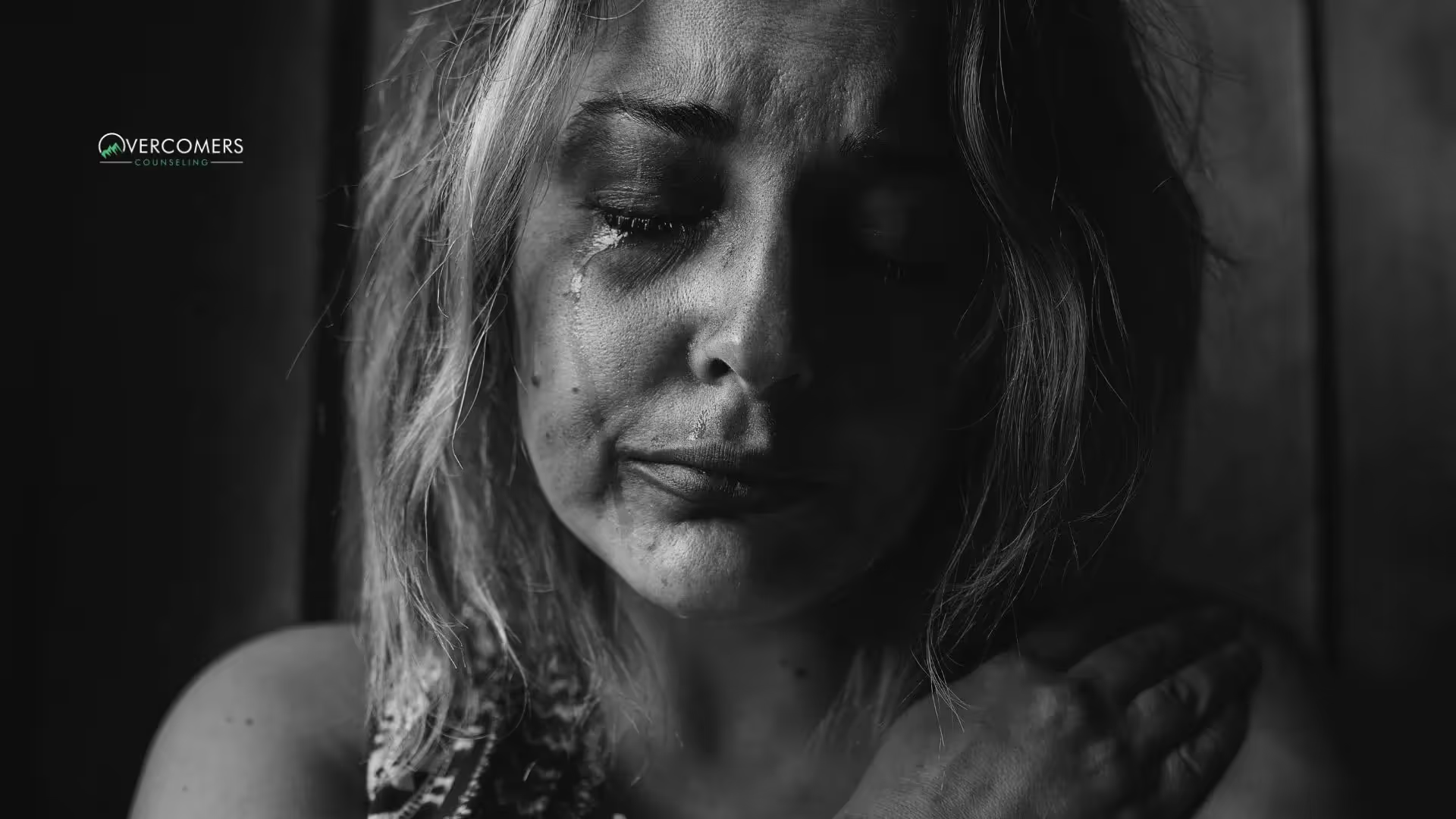Substance abuse can end up in the loss of life in excess cases. The news of loss from substance abuse could cause a lot of pain. It might require grief...

Substance abuse can end up in the loss of life in excess cases.
The news of loss from substance abuse could cause a lot of pain.
It might require grief support to cope with loss from substance abuse.
One of the first things to do to cope with loss from substance abuse is to accept your feelings.
With many conflicting feelings, you might feel guilty about some feelings.
However, none of your feelings are wrong.
You can join a cause to cope with loss from substance abuse.
Giving your time and energy to a cause might help you feel better and gain closure.
It is important to acknowledge the cause is to help others rather than trying to save the deceased.
Experiencing grief triggers can take the bereaved to darker grief days.
It is important to prepare in advance for grief.
This would reduce the chances of falling back into deep grief.
Find out ways to cope with loss from substance abuse below.
Having a loved one that is addicted to a substance is difficult.
Although you care about the person, their addiction can cause conflict.
The loss of a loved one from substance abuse can create very complex emotions.
You will likely feel negative feelings such as sadness and pain.
The thought of how things could have been different might consume you.
However, you might also feel a sense of relief and freedom from the problems that the addictions might have brought.
The feeling of relief at the freedom from the addiction dominating your life might be accompanied by guilt.
Try to remember that you were not responsible for the death of your loved one.
Your feelings are neither right nor wrong; they are just your feelings.
It is important to allow your feelings to flow rather than rejecting the things you truly feel.
Most people might understand the complex nature of a close relationship with a substance abuser.
Learning to accept your feelings allows you to cope with loss from substance abuse.

Substance abuse usually has harmful effects on the body.
There are other daily choices that can have unhealthy effects on the body.
The relevance of self-care is to select healthy and beneficial choices in daily life.
Grief can be a trigger to get into bad habits.
However, it is important to remember how the lack of self-care for your loved ones lost their lives.
In addition, their decision also caused pain for their friends and family.
Try to find the motivation to ensure you cater to your own needs.
It would be helpful to create routines with regular sleep, healthy meals, frequent exercise, and other good habits.
Although it might be difficult in the beginning, it will get easier.
One of the best ways to cope with loss from substance abuse is self-care.
During grief, the bereaved might neglect their personal hygiene practices.
Good personal hygiene routine practice also counts as self-care.

Some people believe there is a silver lining to every act.
You might cope better with the news of your loss if you can find a positive manner to channel your energy.
A great place to channel your energy would be to join a foundation or advocacy against substance abuse.
There are many other people struggling with the same or similar challenges as your loved one.
It is natural to have doubts but consider what you can achieve.
You might be able to make the lives of other people much better.
You can select the best foundation or advocacy you see or the smallest one that you can make an impact on.
You could even create an advocacy group if you feel your interests are not represented.
Committing to work can bring satisfaction and help you heal.
One of the best ways to cope with loss from substance abuse is to channel your energy into something else.
However, it is important to channel your energy in a productive manner.
Try to balance other aspects of your life with the substance abuse cause.
The grief of losing someone from substance abuse can be troubling for the mind.
It can throw your mental state into a state of chaos.
Meditation is a great way to cope with the loss from substance abuse.
Meditation is a great way to refocus your mind.
It can also help to calm all the intense emotions in you.
Meditation helps you accept the order things occur.
There are many ways people choose to meditate.
Some people are more comfortable meditating on a higher power or with faith.
For others, just enjoy the special time to introspect and find peace.
It might also help you to join a meditation group.
The essence of meditation, even group meditation, is still to find yourself.
Meditation will put you in a better place to manage your emotions.
The process of grieving is a long journey with many steps to take.
Certain factors can help hasten or slow down your grieving process.
A grief trigger is a moment that can cause you to revert back to your earlier grief stages.
Common examples of grief triggers for most people are milestones such as birthdays, anniversaries, and holidays.
A grief trigger can be anything, including a smell, a joke, and literally anything that you associate with the deceased.
A grief trigger moment might remind you of the deceased person.
It is important to remember that grief is usually non-linear.
This means that it is unlikely to be able to predict how one's grief will progress.
However, grief triggers can still have a visible effect on your grief process.
Anticipating grief triggers will help you to cope with loss from substance abuse.
When you start recovering from your loss, it is important to prevent grief triggers from reducing your joy.
These people could send you back to dark memories and darker times.
Loss from substance abuse is not uncommon for most people.
Many families and friends need grief support from losing their loved ones to substance abuse.
You can cope with loss from substance abuse by accepting your feelings, self-care, Joining a cause, meditation, and anticipating grief triggers.
How to Be Supportive After a Death From Drugs (verywellmind.com)
5 Strategies to Cope with Grief in Addiction Recovery (thedawnrehab.com)
How to Get Through the Loss of Someone to Addiction | PBI (pbinstitute.com)
Losing a Loved One to Addiction | Coping with Death by Substance Abuse (monarchshores.com)
Grief and Substance Abuse - Coping after a Loss - Promises Behavioral Health
Grief may feel worse at night because sleep disturbances are common during the grieving process. As nighttime falls, distractions diminish and we're left alone with our thoughts, which can make the loss feel overwhelming.
Ignoring grief can exacerbate symptoms and make it more challenging to manage over time. This can result in a negative impact on your personal, professional, and social life, leading to feelings of isolation, chronic sadness, and even physical health complications.
There are a few things you should avoid saying to someone who is grieving, as they can come across as insensitive or unhelpful. For example, don't tell them that it's "time to move on" or that they "should be over it by now." It's also best not to make any assumptions about how they're feeling or what they need – instead, ask them directly how you can help.
Dealing with someone who is addicted to drugs or alcohol can be difficult. It is important to remember that addiction is a disease, and the addict is not responsible for their behavior. You can offer support and understanding, but it is important to set boundaries. You can also get help for yourself through therapy or counseling.
Complicated grief, also known as prolonged grief disorder, is when intense grief symptoms continue for an extended period, often longer than six months. This type of grief can result in difficulty resuming normal life activities and can lead to sleep problems.
It is completely normal to feel dread or even fear when thinking about the upcoming holiday season. One way to ease your anxiety is by planning ahead and being prepared for how you will deal with tough moments. If there are certain events you know will be difficult, try to come up with an exit strategy beforehand so you can leave if needed. It can also be helpful to talk to a therapist or counselor before the holidays to help you manage your expectations and emotions.